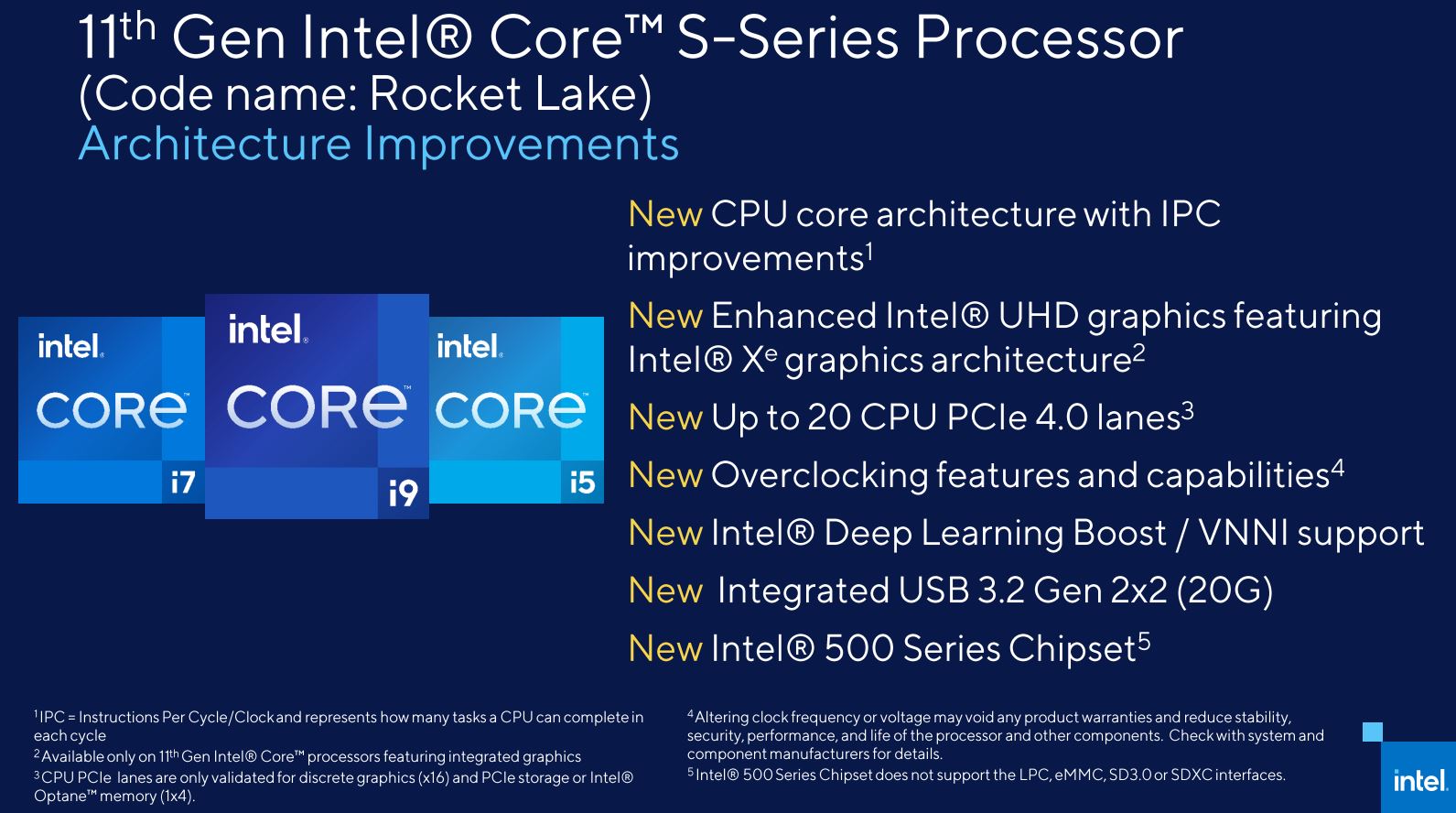Gigabyte Discloses Intel's Rocket Lake-S Launch Date: March 2021
Rocket Lake-S to 'launch' in March
Gigabyte Technology unexpectedly disclosed the launch timeframe for Intel's upcoming 11th-Gen Core processors for desktops codenamed Rocket Lake. As it turns out, the new chips are expected to show up on the market a few months from now, in March 2021.
Intel has already revealed most details about its Rocket Lake processors, and in the last few weeks, multiple leaks have given us a glimpse into the performance of these CPUs in various benchmarks. The company is expected to make some additional announcements about Rocket Lake at CES this month, though this has not been confirmed. It just hasn't shared the actual timeframe of availability for the new processors yet.
According to Gigabyte, the new Rocket Lake CPUs will hit the market this March, which is somewhat later than many expected, albeit still consistent with Intel's promise to make the chips available in the first quarter of the year.
Intel's 11th-Gen Core processors for desktops (Rocket Lake) will pack up to eight cores based on the Cypress Cove microarchitecture (derived from the Sunny Cove microarchitecture used by the Ice Lake products) and are projected to significantly improve performance when compared to their 10th-Gen predecessors (Comet Lake). In particular, Intel promises tangible 'double-digit' instructions per cycle (IPC) gains enabled primarily by the new microarchitecture as well as a brand-new memory controller.
It's still unclear if the upcoming Rocket Lake chips will feature any frequency improvements over Comet Lake CPUs to better compete against AMD's latest Ryzen 5000-series processors that pack up to 16 cores. Intel's 11th-Gen Core processors for desktops will still be made using one of the company's 14 nm process technologies, and it is uncertain whether it has any further clock speed potential in it.
Intel's Rocket Lake processors will also support AVX-512 VNNI instruction to enable Intel's Deep Learning Boost technology to speed up AI algorithms.
Another important improvement that Rocket Lake will bring to market will be its new graphics core based on the Xe-LP architecture (that powers Tiger Lake CPUs) along with all-new media encoders (supporting 12-bit 4:4:4 HEVC, VP9, and SCC as well as 4:2:0 AV1 codecs) as well as new display pipelines (supporting up to three 4Kp60 or up to two 5Kp60 outputs).
Get Tom's Hardware's best news and in-depth reviews, straight to your inbox.
One significant enhancement for Intel's next-gen Rocket Lake processors will be support for a total of 20 CPU PCIe 4.0 lanes, with PCIe 4.0 x16 and a PCIe 4.0 x4 SSD connection directly to the processor.
Intel says the new Rocket Lake CPUs will be compatible with existing Z490 and H470-based motherboards that support processors with a 125W TDP (which translates to 250W under boost). Meanwhile, the new processors will add support for 20 CPU PCIe 4.0 lanes along with the latest Resizable Base-Address Register (Resizable-BAR) to existing platforms.
Intel itself has yet to officially confirm the availability timeframe of its Rocket Lake processors for desktops.

Anton Shilov is a contributing writer at Tom’s Hardware. Over the past couple of decades, he has covered everything from CPUs and GPUs to supercomputers and from modern process technologies and latest fab tools to high-tech industry trends.
-
cryoburner ReplyAccording to Gigabyte, the new Rocket Lake CPUs will hit the market this March, which is somewhat later than many expected, albeit still consistent with Intel's promise to make the chips available in the first quarter of the year.
Who expected them to come sooner? Even a leaked Intel roadmap from over a year-and-a-half ago showed Rocket Lake desktop processors as being expected to launch near the start of Q2 2021...
https://wccftech.com/intel-desktop-mobile-cpu-roadmap-leak-14nm-comet-lake-10nm-ice-lake-tiger-lake/
And of course, they showed no indication of Alder lake being part of their 2021 lineup, and logically those processors should not expected before early 2022.
